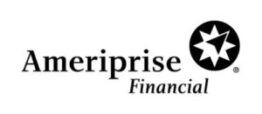
David C. Cannata, of Uniondale, New York, a stockbroker with Craig Scott Capital, LLC, was barred from associating with any Financial Industry Regulatory Authority (FINRA) member in any capacity per a Default Decision containing findings that he engaged in excessive trading and churning, and failed to cooperate in a FINRA investigation into his misconduct. Department of Enforcement v. Cannata, No. 2013037857001 (June 6, 2016).
According to the Decision, between March 2012 and April 2014, Cannata engaged in the unsuitable recommendations to clients TD, JB, and DB. Apparently, Cannata had controlled the clients’ accounts, and decided which investments, and in which quantity, were to be traded for the customers. The clients, which were not aware of the securities being traded, had not been consulted with by Cannata prior to the trades being effected. The Decision stated that the clients had not evaluated the recommendations made to them by Cannata.
The Decision additionally stated that Cannata incorporated a strategy for trading which resulted in massive amounts of activity that FINRA found to be incompatible with the investors’ financial circumstances and conservative investment objectives. Cannata reportedly made aggressive and speculative trades, on a short term basis, where he would purchase securities prior to earnings announcements only to sell the investments promptly afterward. The Decision stated that Cannata would then use the proceeds of a sale to purchase more shares of companies that were due to make earnings announcements, repeating the process over and over again until the clients’ assets were depleted.
In one case, from March through July of 2012, Cannata effected 128 trades in the account of 92-year-old investor, JB, where Cannata raked in commissions and fees totaling $95,045.00 in the process. In another case, from July 2013 through April 2014, 1,680 trades were effected by Cannata in the account of customer DB, which caused Cannata to rake in $690,803.00 in fees and commissions. In a third case, 177 trades were effected by Cannata in the account of TD, which led Cannata to make $131,290.00 in commissions and fees. These investors had suffered losses that ranged from $114,171.00 to $1,263,527.00 as a consequence of Cannata’s short term trading scheme.
The Decision noted that Cannata’s trading, in consideration of the turnover rates and cost/equity ratios in the aforementioned accounts, were clearly excessive. The Decision stated that JB’s annualized turnover rate was 262, DB’s was 210, and TD’s was 172. JB’s cost/equity ratio was apparently 327%, DB’s was 169%, and TD’s was 618%. FINRA based their position on Cannata’s excessive trading by concluding that turnover rates exceeding 6 are generally excessive, and cost/equity ratios above 20% are excessive. FINRA found that Cannata violated FINRA Rules 2010 and 2111, as well as NASD Conduct Rule 2310 as a result of his excessive trading.
FINRA also found that Cannata churned his clients’ accounts through acts of deception in order to gain financially and lacked consideration of his clients’ financial wellbeing and resources. The Decision stated that Cannata failed to have any legitimate basis to validate his massive trading when considering his clients’ objectives and financial circumstances. As such, FINRA found that Cannata violated Exchange Act Section 10(b), Rule 10b-5, and FINRA Rules 2010 and FINRA Rules 2010.
The Decision additionally stated that Cannata failed to cooperate in a FINRA investigation into his aforementioned misconduct. Specifically, in 2015, FINRA’s Department of Enforcement apparently sent Cannata six requests, per FINRA Rule 8210, for Cannata to provide on-the-record testimony. Cannata reportedly never showed up at any point to cooperate. FINRA found Cannata to be in violation of FINRA Rule 2010 and 8210 in this regard.
Public disclosure records reveal that Cannata has been subject to eleven disclosure incidents. On December 1, 1997, Cannata settled a customer dispute for $100,000.00 amid allegations of excessive activity. On August 31, 2012, Cannata settled a customer dispute for $13,000.00 after he was alleged to have engaged in frequent trading.
On October 27, 2014, Cannata became subject to a pending six count complaint by a customer alleging fraud, churning, unsuitability, breach of fiduciary duty, breach of contract, and negligent supervision. On April 10, 2015, Cannata became subject to a pending customer dispute, in which a customer is requesting $900,000.00 in damages amid allegations of breach of duty of good faith, breach of contract, and negligence. On May 1, 2015, Cannata settled a customer dispute for $338,454.00 amid allegations of churning, unsuitability, unauthorized trades, and negligence.
The information contained herein has been obtained from reliable sources however may not be accurate and is not guaranteed by us. Readers are encouraged to undertake their own independent investigation and evaluation of the relevant facts. All claims and allegations are subject to adjudication, decisions may be subject to appeal, and no inference is intended, nor should any inference be made from any information contained herein from any source.
This posting and the information on our website is for general information purposes only. This content should be not considered legal advice, and any responses, comments, e-mails, other communications do not form any attorney client relationship. Attorney Advertisement. See Important Disclaimer
Guiliano Law Group
Our practice is limited to the representation of investors. We accept representation on a contingent fee basis, meaning there is no cost to you unless we make a recovery for you. There is never any charge for a consultation or an evaluation of your claim. For more information, contact us at (877) SEC-ATTY.
For more information concerning common claims against stockbrokers and investment professionals, please visit us at securitiesarbitrations.com
To learn more about FINRA Securities Arbitration, and the legal process, please visit us at securitiesarbitrations.com








